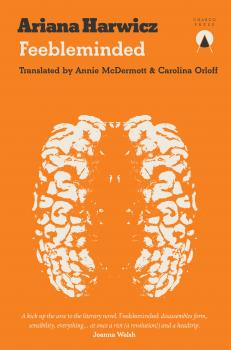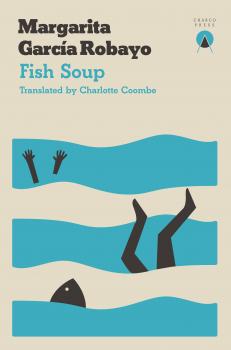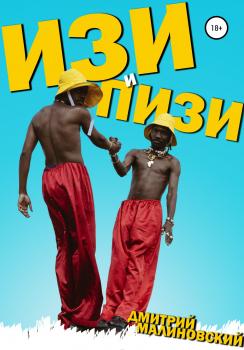Юмористическая фантастика
Различные книги в жанре Юмористическая фантастикаEat My Heart Out
At twenty-three, Ann-Marie is single, broke, and furious, and convinced that love—sweet love!—is the answer to all of her problems. Then she meets legendary second wave feminist Stephanie Haight, who becomes obsessed with the idea that she can save Ann-Marie and her entire generation. From Little Mermaid-themed warehouse parties and ritual worship ceremonies summoning ancient goddesses to disastrous one-night stands with strikingly unsuitable men, Ann-Marie hurtles through London and life. Fiercely clever and unapologetically wild, Eat My Heart Out is the satire for our narcissistic, hedonistic, post-postfeminist era.
Лига Мстителей: Дорога Ярости
Внезапно в городе N появляется ужасный злодей Асфальтрон, дырявящий дорожное полотно, на зло всем мирным жителям города и обещающий превратить все вокруг в зияющую дыру. Не желая мириться с происходящим, Старослужащий снова собирает легендарных героев. В это же время тайная организация депутатов следит за ходом битвы и вынашивает свой коварный план по повышению… повышению чего-нибудь.
Slum Virgin
“Queer writing at its most exhilarating.” —Times Literary Supplement The slums of Buenos Aires, the government, the mafia, the Virgin Mary, corrupt police, sex workers, thieves, drug dealers, and debauchery all combine in this sweeping novel deemed a ‘revelation for contemporary literature’ and ‘pure dynamite’ (Andrés Neuman, author of Traveller of the Century & Talking to Ourselves ). When the Virgin Mary appears to Cleopatra, she renounces sex work and takes charge of the shantytown she lives in, transforming it into a tiny utopia. Ambitious journalist Quity knows she’s found the story of the year when she hears about it, but her life is changed forever once she finds herself irrevocably seduced by the captivating subject of her article. Densely-packed, fast-paced prose, weaving slang and classical references, Slum Virgin refuses to whitewash the reality of the poor and downtrodden, and jumps deftly from tragedy to comedy in a way that has the reader laughing out loud.
Feebleminded
In Feebleminded , Harwicz drags us to the border between fascination and discomfort as she explores aspects of desire, need and dependency through the dynamics between a mother and her daughter, searching through their respective lives to find meaning and define their own relationship. Written in a wild stream of consciousness narration in the best tradition of Virginia Woolf and Nathalie Sarraute, and embedded in a current trend of elusive violence so ingrained in contemporary Latin American fiction, Feebleminded follows the pair on a roller coaster of extreme emotions and examinations into the biographies of their own bodies where everything – from a childhood without answers to a desolate, loveless present – has been buried. Told through brief but extremely powerful chapters, this short lyrical novel follows Die, My Love as the second part in what Harwicz has termed an ‘involuntary trilogy’. An incredibly insightful interrogation on the human condition, desire and the burden of deep-rooted family mandates.
Fish Soup
From internationally acclaimed author Margarita García Robayo comes Fish Soup , a unique collection comprising two novellas and the book of short stories Worse Things (winner of the prestigious Casa de las Américas Prize). Set on the Caribbean coast of Colombia, Waiting for a Hurricane follows a girl obsessed with escaping both her life and her country. Emotionally detached from her family, and disillusioned with what the future holds if she remains, she takes ever more drastic steps to achieve her goal, seemingly oblivious to the damage she is causing both herself and those around her. The seven tales of Worse Things offer snapshots of lives in turmoil, frayed relationships, dreams of escape, family taboos and rejection of and by society. García Robayo paints in just enough detail to evoke the intensity of the situation, while leaving it to the reader to unravel the true meaning of events. Sexual Education examines the attempts of a student to tally the strict doctrine of abstinence taught at her school with the very different moral norms that prevail in her social circles. Semi-autobiographical, the frank depiction of these opposing forces makes it deeply unsettling. Throughout the collection, García Robayo’s signature style blends cynicism and beauty with a rich vein of dark humour. The prose is at once blunt and poetic as she delves into the lives of her characters, who simultaneously evoke sympathy and revulsion, challenging the reader’s loyalties throughout the remarkable universe that is Fish Soup .
Die, My Love
Man Booker International Prize 2018 —Longlist In a forgotten patch of French countryside, a woman is battling her demons: embracing exclusion yet wanting to belong, craving freedom whilst feeling trapped, yearning for family life but wanting to burn the entire house down. Given surprising leeway by her family for her increasingly erratic behaviour, she nevertheless feels ever more stifled and repressed. Motherhood, womanhood, the banality of love, the terrors of desire, the brutality of ‘another person carrying your heart forever’: Die, My Love faces all this with a raw intensity. It’s not a question of if a breaking point will be reached, but rather when, and how violent a form will it take? It’s impossible to come out unscathed from reading Ariana Harwicz. The language of Die, My Love cuts like a scalpel even as it attains a kind of cinematic splendour, evoking the likes of John Cassavetes, David Lynch and John Ford. In a text that explores the destabilising effects of passion and its absence, immersed in the psyche of a female protagonist always on the verge of madness (in the tradition of Sylvia Plath and Clarice Lispector), Harwicz moulds language, submitting it to her will in irreverent prose. Bruising and confrontational, yet anchored in an unapologetic beauty and lyricism, Die, My Love is a unique reading experience that quickly becomes addictive.
Изи и Пизи
Дима – ленивый дурень, который живёт с мамой и папой. Мама хочет, чтобы сын пошёл работать, а сын хочет просто жить и ничего не делать. Родители заключают контракт с Димой – он едет с ними в Африку «проветриться», а мама больше не будет допекать с вопросами о работе. Дима не подозревает, что родители хотят оставить его в Африке. Причём тут Изи и Пизи? Это два крутых шамана из Кении, которые наделят Диму своей силой. Но Дима как-никак русский человек, и его душа возьмёт верх над душами Изи и Пизи. Шаманы вселятся в душу Димы, но под командованием самой души нашего ленивца. Дима вернётся в Москву с силой двух могущественных шаманов. Однако души дадут сбой, и в Диме окажется добрая частичка Изи и злая частичка Пизи. Вот здесь и начнутся «Московские кордебалеты».









